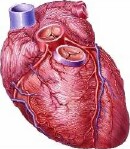
TUESDAY, July 26 (HealthDay News) — Prevention is the key to stemming the soaring cost of heart disease in the United States, which reached $450 billion last year, according to a new policy statement from the American Heart Association (AHA).
Programs to better manage cholesterol, blood pressure and tobacco use would be a wise long-term investment in the nation’s health and economy, said the heart experts as they called on policy makers to make heart-disease prevention a national priority.
“What we spend on cardiovascular disease is not sustainable. But we can afford to prevent it. Ultimately, we can’t afford not to,” said the statement’s lead author, Dr. William S. Weintraub, chair of cardiology and cardiology section chief at Christiana Care Health System in Newark, Del., in an AHA news release.
In the statement, published July 25 in the journal Circulation, the authors called for community-based changes that make adopting a healthier lifestyle easier. They calculated that every $1 spent on the construction of walking or biking paths would cut medical costs by $3.
Additionally, a nationwide plan to slash salt in the U.S. food supply would help Americans stay within recommended sodium guidelines — 1,500 milligrams daily — and reduce the rate of high blood pressure by 25 percent, the statement said. That would save $26 billion in health care costs each year, the authors added.
“People often don’t realize the power to stay healthy is in their own hands,” said Weintraub. “But it’s not something many individuals or families can do alone. It takes fundamental changes from society as a whole.”
To implement heart-healthy changes within communities, the AHA said federal, state and local lawmakers must take action.
“Individual responsibility is a crucial first step, but environmental and policy changes are the most impactful ways to improve health,” said Dr. Gordon Tomaselli, AHA president and professor and director of the division of cardiology at the Johns Hopkins University School of Medicine in Baltimore, in the news release.
The heart experts urged policy-makers to take the following steps:
- Require schools to offer proper physical education and other opportunities to exercise on a daily basis.
- Ensure that schools provide more fruits and vegetables for lunch and fewer foods high in salt and sugar.
- Push for construction of communities that incorporate physical activity and promote the establishment of sidewalks and bike trails.
- Cut down on added sugar, salt and trans fats in foods.
- Encourage local stores to carry affordable fresh produce.
- Ban smoking in restaurants and other indoor spaces.
- Boost taxes on tobacco products to further discourage their use.
- Ensure adequate funding for smoking cessation programs.
The AHA policy statement concluded that taking steps to prevent heart disease now could have long-term economic and physiological benefits.
“Prevention will pay for itself,” added Tomaselli. “Not just monetarily, but also by lengthening and improving the quality of life people can enjoy. More importantly, these changes won’t just affect us today, they’ll have a positive impact on generations to come.”
More information
The U.S. National Institutes of Health provides more information on heart disease prevention.

